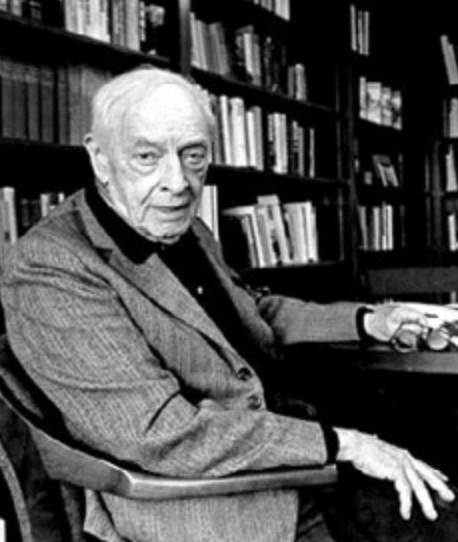On this date in 1915, writer Saul Bellow was born in Lachine, Quebec, Canada, to Russian immigrants Lescha (née Gordin) and Abraham Bellows. He was raised in a strict Jewish household until age 15, when his mother died. She wanted him to become a rabbi, but he quickly drifted away from religion and began reading a wide variety of literature. Bellow spent most of his early life in Chicago, where he attended the University of Chicago before transferring to Northwestern University for his B.A. in sociology and anthropology.
He later did graduate work in anthropology at the University of Wisconsin-Madison. He’d become a naturalized U.S. citizen in 1941 and served in the merchant marine during World War II. He published his first novel, Dangling Man, in 1944. He taught at the University of Minnesota, University of Puerto Rico and University of Chicago as he worked on his writing career.
Bellow’s early novels include The Adventures of Augie March (1953), which won the National Book Award, Henderson the Rain King (1959) and Seize the Day (1965). He was the first American to receive the International Literacy Prize for his novel Herzog (1964), which spent 42 weeks on the best-seller list. The book is composed of (often unsent) letters of reflection from the protagonist Moses E. Herzog to figures ranging from Nietzsche to President Eisenhower and God. Herzog secured Bellow’s status as an acclaimed author. Mr. Sammler’s Planet (1970) won a National Book Award and Humboldt’s Gift (1975) received the 1976 Pulitzer Prize for Fiction.
After writing numerous works of fiction, Bellow wrote his first nonfiction book, To Jerusalem and Back: A Personal Account (1976), which details his experiences and impressions of visiting Israel for several months in 1975. He received the 1976 Nobel Prize in Literature “for the human understanding and subtle analysis of contemporary culture that are combined in his work.” His final novel, Ravelstein (2000), is a biographical portrait based on Allan Bloom, a political philosopher, author, education critic and personal friend.
During his career he also wrote plays, critically received story collections like Mosby’s Memoirs and contributed fiction to many literary quarterlies. Bellow died at home at age 89 in Brookline, Mass. He was married five times and divorced four times and was survived by three sons and a daughter, the last born in 2000 when he was 84. (D. 2005)
PHOTO: Bellow at Boston University, c. 1992.

